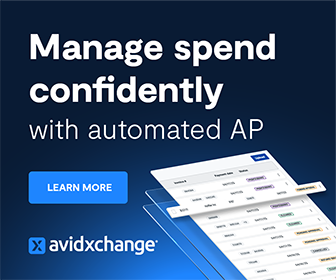As a controller, you play a vital role in the organization. An unsung hero and a key player who steers the company through the best and the worst of times, you might be happy in your role. However, you also might e looking for the power and prestige that comes from grabbing the ring and moving into the CFO office.
The view might be a little bit better, the office might be a little bit bigger, and the paycheck may have a little bit more ink on it, but it also requires a new way of thinking. Today, we’re looking at the ongoing opportunities and challenges in moving from controller/CAO to CFO in anticipation of our Controller to CFO webcast.
Changing Roles, Changing Mindset: Are You Cut out for the CFO Role?
While it’s understandable that you could adapt to the role if you need to, are you ready for the changing duties and mindset? Whether it’s technological leadership or operations control, if you’re being tapped in the succession plan, what should you plan for f you choose to make the leap?
Bigger Broader Role—IT, Operations, and More
Finance has a hand in more departments than ever, and nearly 40% of finance leaders admit the finance department is becoming more accountable for the business’ success. In a business landscape where the CFO’s job is to manage the bottom line, he or she also needs to understand a variety of new areas that impact said bottom line.
Maybe this means taking on leadership of an IT project with the help of the CIO, maybe it means taking a look at how you’re going to apply traditional risk management principles to IT. Maybe it means you have to take on a new role in operations—after all, if there’s one C-suite position being phased out, it’s the COO. Are you ready to split the operations role with the CEO?
Less Need for CPA
Over the past two decades, the CFO role has shifted. In a recent IFAC article, Revisiting the Question—Should a CFO be an Accountant?, author Stathis Gould noted a recent trend: CFOs who are certified public accountants fell to about 36% in 2019. Five years prior, the number was closer to 50%, and at the time of the Sarbanes-Oxley Act of 2002, demand for accounting-literate finance leadership was at an all-time high.
As a controller, thinking of a role without the need for CPA certifications or CPE credits might represent a significant change. Add to this new roles like capital planning, mergers and acquisitions, sustainability, and more, and you need to be prepared.
From Day to Day to Year over Year
As a controller, you have a unique set of responsibilities—often focused on the short term. You’re the person that steers the ship through choppy waters. But as you move to the CFO role, you’re going to be looking at half-decade or longer plans. You have to bring in the right people to manage the steering as you chart courses and offer guidance. This requires more decisiveness and will need you to be more decision-oriented than ever.
The Road Less Traveled
Though fewer and fewer controllers are grabbing the ring, we’re one big regulatory or technical change away from the return of the CPA CFO. The opportunity is often there if you want it—but you have to chart your course. Whether it’s taking on strategic roles or working more closely with your CFO, there are a variety of steps you can take to position yourself for the move.
Want a good first step? How about joining us on September 15? If you’re interested in making the move, we invite you to join us for Controller to CFO: The Path to Promotion. Learn the secrets to success from CFOs that were controllers. Ted Weitzel, SVP Finance & Operations, G2, and former Controller will be a panelist. Other panelists to be announced. Lindy Antonelli, Partner, Armanino will Moderate.
Click here to watch our Controller to CFO webcast on-demand.
Additional Resources
A Deeper Look at CPA Evolution
Upskilling Your Accounting Staff for the Recovery
Tips for Controllers Looking to Build an Effective Relationship with the Audit Committee




